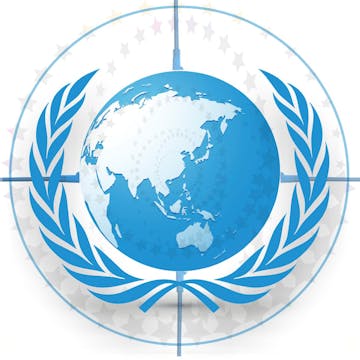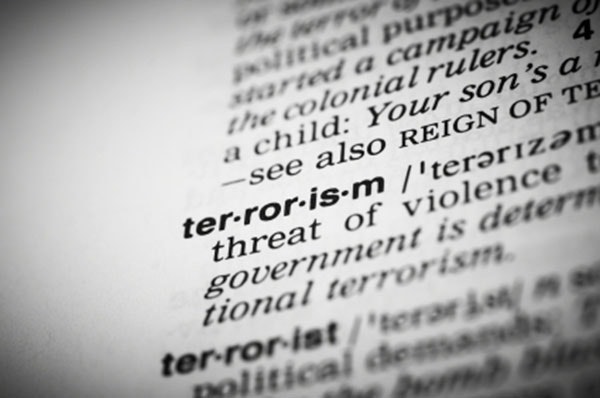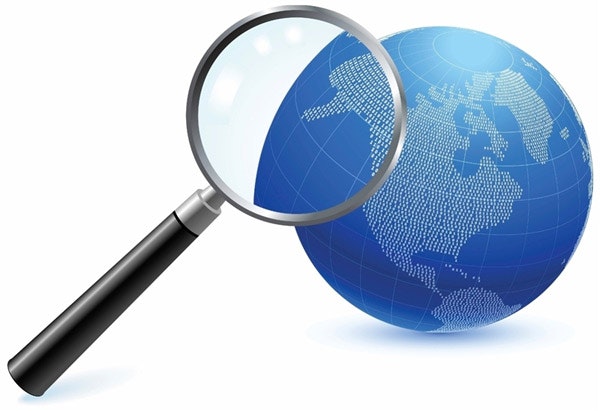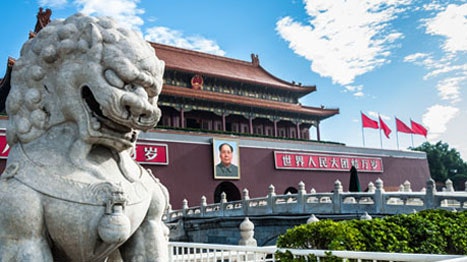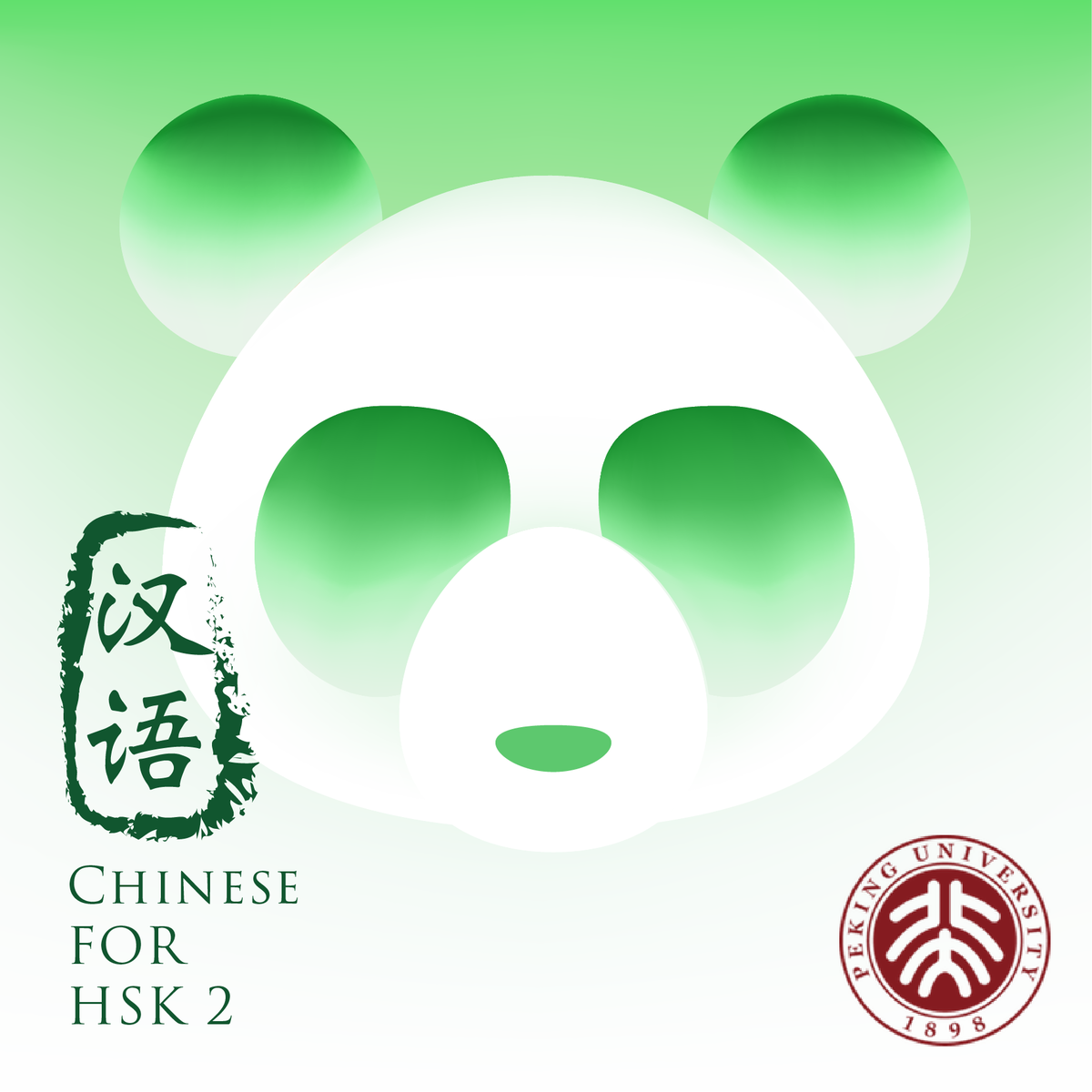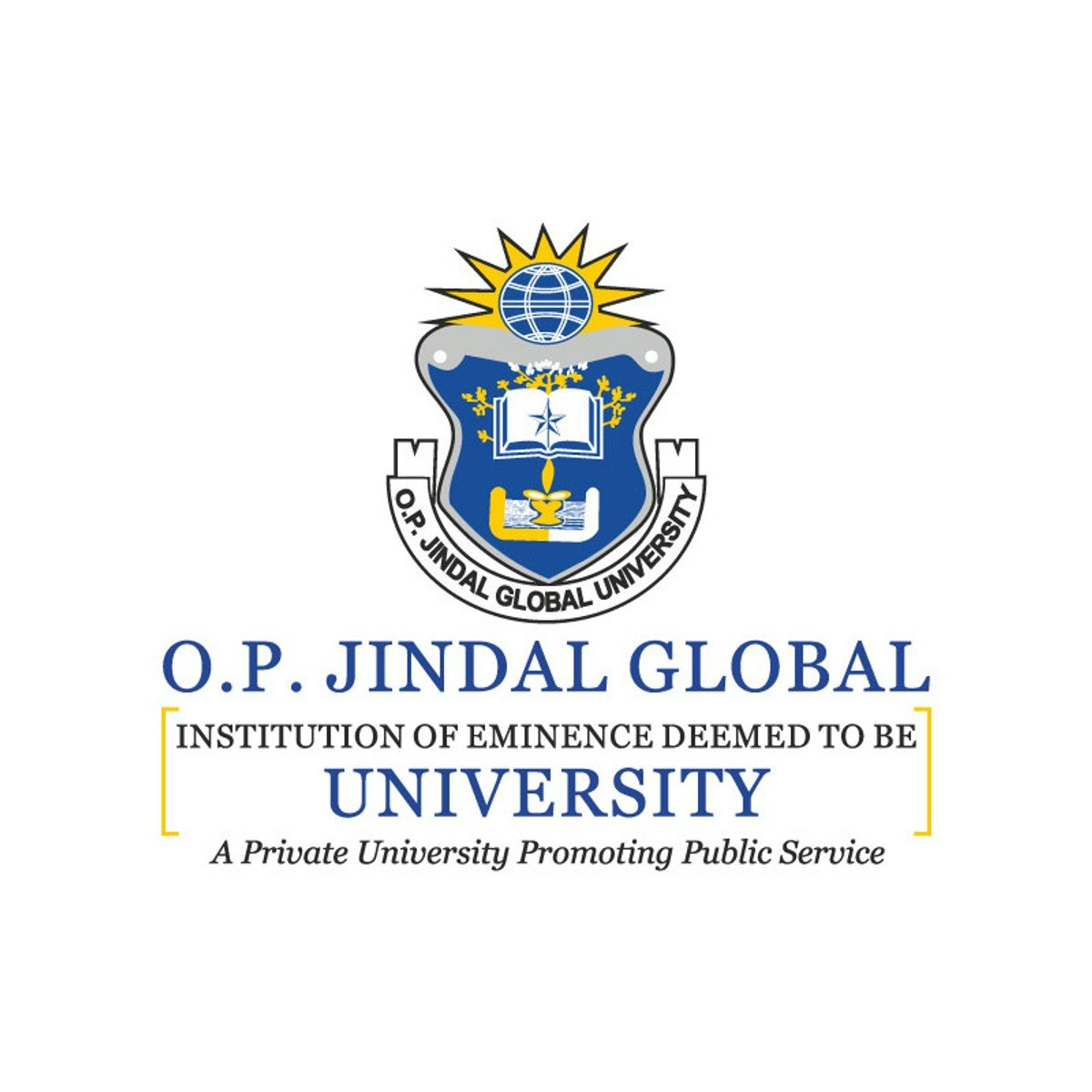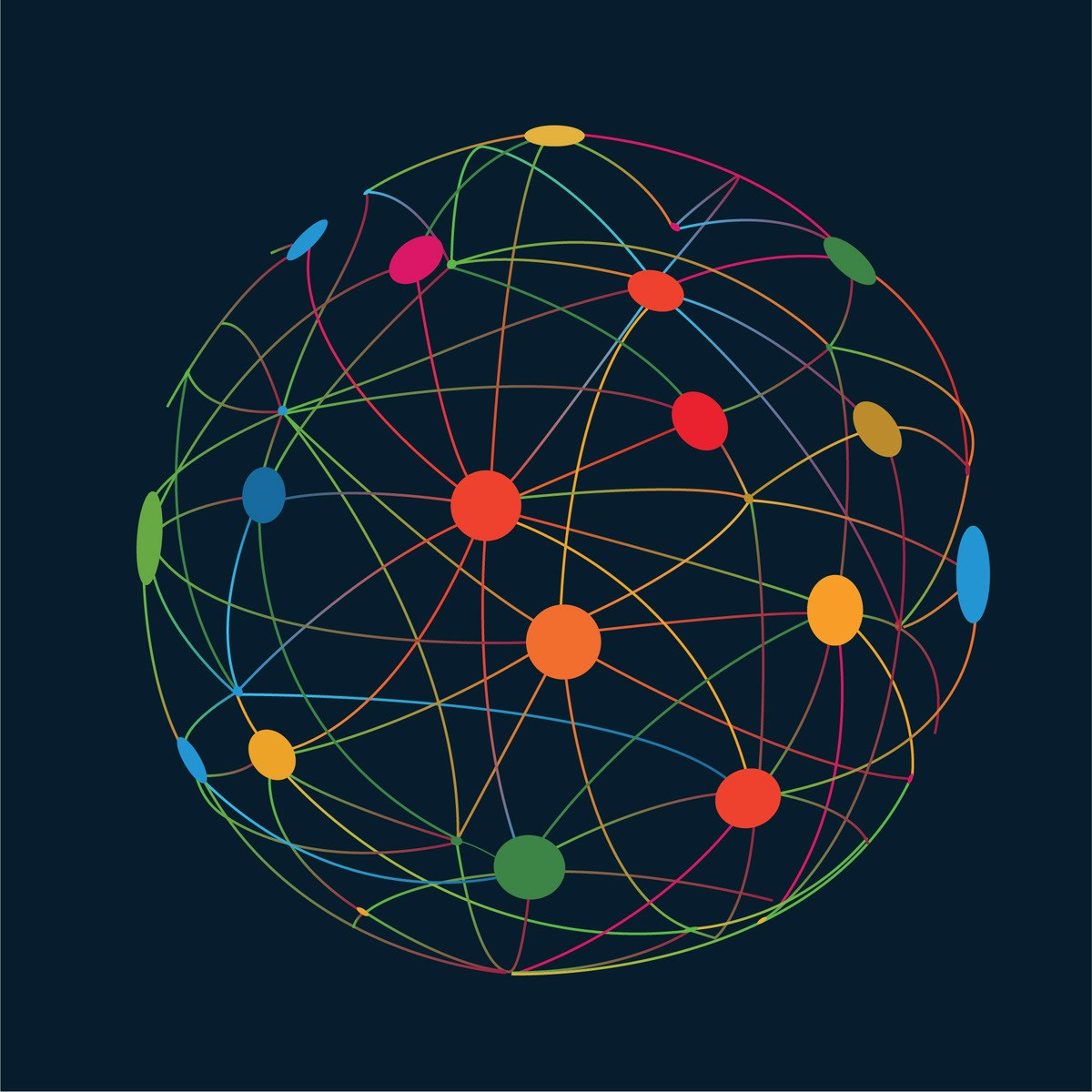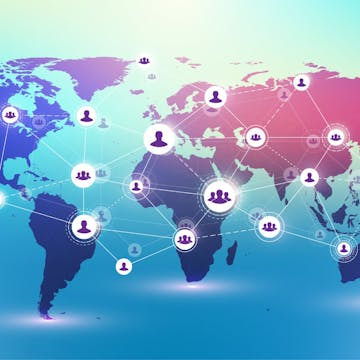International Relations Specialist
A Career Guide to Becoming an International Relations Specialist
An International Relations Specialist analyzes and interprets the complex web of interactions between countries, international organizations, multinational corporations, and non-governmental organizations (NGOs). They delve into political, economic, social, and cultural factors that shape global affairs, foreign policies, and international stability. This role requires a deep understanding of history, political theory, economics, and cultural dynamics to navigate the intricate landscape of global interactions.
Working in this field offers the chance to engage with pressing global issues, from international security and economic development to human rights and environmental protection. Specialists might find themselves advising policymakers, negotiating agreements, managing international projects, or conducting research that influences global strategies. The dynamic nature of international affairs ensures that the work is constantly evolving, intellectually stimulating, and holds the potential for significant real-world impact.
This career path often appeals to individuals fascinated by global events, different cultures, and the mechanisms of international cooperation and conflict. It's a field where analytical rigor meets diplomatic finesse, demanding both sharp critical thinking and strong interpersonal skills. If you are driven by a desire to understand and shape global dynamics, a career as an International Relations Specialist could be a fulfilling pursuit.
What is International Relations?
International Relations (IR) is a field of study and practice focused on the interactions between sovereign states and other international actors. Specialists in this field examine how global, regional, and national forces influence relationships in areas like diplomacy, trade, security, and governance. Understanding these dynamics is crucial for navigating an increasingly interconnected world.
What is an International Relations Specialist?
An International Relations Specialist is a professional who applies knowledge of political science, economics, history, and cultural studies to analyze relationships between nations and other global entities. Their work involves researching international issues, evaluating foreign policies, and providing insights or recommendations to governments, businesses, or organizations. They strive to understand the 'why' behind global events and anticipate future developments.
The scope of their work is broad. Some specialists focus on specific geographic regions, like East Asia or the Middle East, while others concentrate on thematic issues such as international law, global health, economic development, or arms control. Their analysis helps inform decisions that can range from diplomatic strategies to international business investments or humanitarian aid distribution.
Essentially, these specialists act as interpreters and advisors on global matters. They bridge understanding between different cultures and political systems, helping organizations navigate the complexities of the international environment effectively and ethically.
To get a foundational overview of the field, consider exploring introductory courses. These resources can provide a solid starting point for understanding the core concepts and theories that underpin the discipline.
Further reading can offer more comprehensive introductions to the subject.
A Brief History of International Relations Work
The practice of managing relations between distinct political entities is ancient, dating back to early city-states and empires engaging in diplomacy, trade, and warfare. However, the formal academic discipline of International Relations emerged primarily in the early 20th century, spurred by the devastation of World War I and a desire to understand and prevent large-scale conflict.
Early IR scholarship focused heavily on the causes of war and the conditions for peace, leading to the development of idealist theories emphasizing international law and organizations. The failures of the League of Nations and the onset of World War II prompted a shift towards realism, a perspective emphasizing power politics and national interest as the primary drivers of state behavior.
The Cold War dominated the field for decades, focusing attention on bipolarity, nuclear deterrence, and ideological conflict. The end of the Cold War opened up new avenues of inquiry, including globalization, the rise of non-state actors, human rights, environmental issues, and identity politics, leading to a diversification of theoretical approaches like constructivism and liberalism.
Today, International Relations Specialists draw upon this rich history, employing diverse theories and methods to analyze a world characterized by complex interdependence, transnational challenges, and shifting power dynamics. Understanding this historical evolution provides crucial context for contemporary global issues.
Exploring historical conflicts and periods can illuminate the evolution of diplomatic practices and international systems.
Why International Relations Matters Today
In our interconnected world, events in one country can have profound effects globally. Issues like climate change, pandemics, cyber security, economic stability, and migration transcend national borders, requiring international cooperation and understanding. International Relations Specialists play a vital role in analyzing these challenges and informing effective responses.
Globalization has increased the complexity of interactions between nations, corporations, and individuals. Businesses operate across borders, supply chains span continents, and information flows instantaneously. Specialists help organizations navigate this complex environment, understand geopolitical risks, and identify opportunities for collaboration and growth.
Furthermore, maintaining peace and security remains a central concern. Specialists contribute by analyzing conflicts, facilitating diplomatic negotiations, working on arms control agreements, and contributing to peacekeeping efforts. Their expertise is crucial for preventing conflicts and managing crises when they arise.
Ultimately, the field of International Relations helps us make sense of the world we live in. It provides the tools to understand diverse perspectives, analyze global trends, and contribute to building a more stable, prosperous, and just international order. The insights generated by specialists are indispensable for policymakers, business leaders, and citizens alike.
Courses focusing on specific global challenges highlight the contemporary relevance of the field.
Where Do International Relations Specialists Work?
International Relations Specialists find employment across various sectors, reflecting the broad applicability of their skills. A significant number work in government, particularly in foreign ministries, intelligence agencies, defense departments, and international development agencies. They might serve as diplomats, policy advisors, intelligence analysts, or program managers.
International organizations, such as the United Nations, the World Bank, the International Monetary Fund (IMF), and regional bodies like the European Union or ASEAN, are major employers. Here, specialists work on multilateral diplomacy, economic development projects, peacekeeping operations, and the implementation of international treaties.
The private sector also offers opportunities, especially within multinational corporations, consulting firms, and financial institutions. Specialists may work as political risk analysts, international market researchers, corporate social responsibility managers, or government relations advisors, helping businesses navigate global complexities.
Non-governmental organizations (NGOs) focused on human rights, humanitarian aid, environmental protection, and global health also employ IR specialists. Roles include advocacy, research, program management, and field operations. Additionally, think tanks and academic institutions rely on specialists for research, analysis, and teaching.
Core Competencies of an International Relations Specialist
Success in international relations requires a unique blend of analytical skills, communication abilities, and adaptability. Professionals must be adept at understanding complex systems, navigating diverse cultural contexts, and engaging effectively with various actors on the global stage. Mastering these core competencies is essential for anyone aspiring to a career in this field.
Mastering Diplomacy and Resolving Conflicts
Diplomacy is the art and practice of conducting negotiations between representatives of states or organizations. It requires tact, discretion, and strong communication skills to build relationships, manage disagreements, and advance interests peacefully. International Relations Specialists must understand diplomatic protocols and negotiation strategies.
Conflict resolution involves identifying the root causes of disputes and facilitating solutions acceptable to all parties. This often requires mediation skills, creative problem-solving, and an ability to remain impartial. Specialists may work on resolving interpersonal disagreements within multicultural teams or contribute to high-stakes international peace negotiations.
Developing skills in negotiation is fundamental. Understanding different negotiation frameworks, managing emotions during tense discussions, and knowing how to build trust are critical components. These abilities are applicable whether negotiating a trade deal, a peace treaty, or project terms with international partners.
Online courses can provide structured training in negotiation techniques and conflict management principles.
record:db1d56
Reading about peacemaking efforts can offer valuable perspectives on resolving complex conflicts.
Navigating Cultures and Languages
Cultural intelligence (CQ) is the capability to relate and work effectively across cultures. It involves understanding different cultural norms, values, communication styles, and social etiquettes. High CQ enables specialists to build rapport, avoid misunderstandings, and collaborate successfully with people from diverse backgrounds.
Language proficiency is a significant asset in international relations. Fluency in languages beyond one's native tongue facilitates direct communication, deepens cultural understanding, and opens doors to opportunities. While English is often a working language, proficiency in languages like French, Spanish, Arabic, Mandarin, Russian, or others relevant to specific regions or organizations is highly advantageous.
Developing intercultural competence goes beyond language; it includes adaptability, empathy, and an open mindset. It means recognizing one's own cultural biases and being willing to learn from and adapt to different perspectives. This skill is crucial for effective fieldwork, diplomacy, and managing international teams.
Resources focusing on cultural awareness and language skills are invaluable for aspiring specialists.
Books on cultural intelligence offer frameworks and strategies for enhancing cross-cultural effectiveness.
Analyzing Policy and Predicting Global Trends
Policy analysis involves critically evaluating existing or proposed policies to understand their objectives, implementation, and potential consequences. International Relations Specialists analyze foreign policies, trade agreements, development aid programs, and international regulations. This requires strong research skills, logical reasoning, and the ability to synthesize complex information.
Geopolitical forecasting attempts to anticipate future international developments, conflicts, and shifts in power. It involves analyzing current trends, historical patterns, economic indicators, and political dynamics to make informed predictions about the future state of global affairs. This foresight helps governments and organizations prepare for potential risks and opportunities.
These analytical skills require a solid grounding in international relations theories, political economy, and research methodologies. Specialists must be able to gather relevant data from diverse sources, assess its credibility, identify patterns, and communicate their findings clearly and concisely, often through written reports or oral briefings.
Courses covering geopolitical analysis and foreign policy can help build these critical skills.
Engaging with different theoretical perspectives enhances analytical depth.
Engaging with Diverse Stakeholders
International relations work rarely happens in isolation. Specialists must effectively engage with a wide range of stakeholders, including government officials, diplomats, business leaders, NGO representatives, academics, journalists, and local community members. This requires excellent communication, networking, and relationship-building skills.
Understanding the interests, perspectives, and constraints of different stakeholders is crucial for successful collaboration and negotiation. Specialists need to tailor their communication style and approach depending on the audience and context. Building trust and maintaining credibility are paramount in these interactions.
Effective stakeholder engagement also involves managing expectations, mediating differing viewpoints, and building consensus when possible. This can be particularly challenging in multicultural or politically sensitive environments. Strong interpersonal skills, active listening, and cultural sensitivity are essential for navigating these complexities.
Formal Education Pathways
Entering the field of international relations typically requires a strong academic foundation. Educational pathways often involve specific degree programs and may benefit significantly from practical experiences like internships and study abroad. Understanding these requirements is crucial for planning your educational journey.
Building Your Foundation: Undergraduate Studies
A bachelor's degree is generally the minimum educational requirement for entry-level positions in international relations. Common majors include International Relations, Political Science, Global Studies, History, Economics, or related social sciences. These programs provide foundational knowledge of global systems, political theories, historical contexts, and economic principles.
Coursework often covers topics like international law, comparative politics, foreign policy analysis, international political economy, and specific regional studies. Developing strong research, writing, and analytical skills during undergraduate studies is essential. Many programs also encourage or require foreign language study.
Beyond coursework, internships with government agencies, NGOs, think tanks, or international businesses provide invaluable practical experience. Participating in Model United Nations or other relevant extracurricular activities can also enhance your profile and skills.
Relevant undergraduate-level courses can supplement formal degree programs or provide foundational knowledge for those exploring the field.
Exploring foundational texts can provide a broader understanding of the intellectual landscape.
Advanced Studies: Graduate Degrees and Certifications
For many specialized roles and career advancement in international relations, a master's degree is highly recommended or required. Common graduate degrees include a Master of Arts (MA) in International Relations, Master of Science (MS) in Global Affairs, Master of Public Policy (MPP), or Master of International Business (MIB).
Graduate programs allow for deeper specialization in specific regions (e.g., Middle Eastern Studies, Latin American Studies) or functional areas (e.g., International Security, Development Economics, Human Rights Law). These programs emphasize advanced research, analytical methods, and often include opportunities for internships or capstone projects.
Professional certifications, while less common than degrees, exist in specialized areas like international trade or project management and can sometimes enhance a candidate's profile. Choosing a graduate program often depends on specific career goals, whether aiming for academia, government service, or the private sector.
Advanced courses explore specific regions, international law, and complex global issues.
Key texts delve into theoretical debates and specific applications within the field.
Pushing Boundaries: Doctoral Research
A Doctor of Philosophy (PhD) in International Relations, Political Science, or a related field is typically required for careers in academia (as a professor or researcher) and some high-level research positions in think tanks or government. PhD programs involve rigorous coursework in theory and methodology, comprehensive exams, and the completion of a dissertation based on original research.
Doctoral research contributes new knowledge to the field, exploring complex questions about global politics, economics, security, or governance. PhD candidates develop deep expertise in their chosen specialization and hone advanced analytical and research skills. The process is demanding and requires significant commitment, usually taking four to seven years to complete.
Areas of research are diverse, reflecting the breadth of the field. Current research often focuses on emerging challenges like cybersecurity, climate change governance, rising powers, transnational movements, and the changing nature of global institutions. Pursuing a PhD is a path for those passionate about deep inquiry and contributing to the intellectual development of international relations.
Gaining Global Experience: Studying Abroad
Studying abroad offers an unparalleled opportunity to gain firsthand exposure to different cultures, political systems, and languages. It enhances intercultural competence, adaptability, and global awareness – qualities highly valued in the international relations field. Many undergraduate and graduate programs offer or even require study abroad experiences.
Living and studying in another country provides practical insights that cannot be fully grasped from textbooks alone. It allows students to build international networks, improve language skills through immersion, and gain a deeper understanding of local perspectives on global issues. This experience can be transformative both personally and professionally.
Opportunities range from short-term summer programs to full academic years at partner universities. Some programs may include internships or research components, further enhancing practical skills and local knowledge. Choosing a location relevant to one's academic or career interests can maximize the benefits of studying abroad.
Learning languages is often a key component and goal of studying abroad.
Books about navigating cultural differences can be helpful before, during, and after such experiences.
Role of an International Relations Specialist in Global Organizations
International Relations Specialists operate within diverse organizational structures, each with unique mandates and operational contexts. Their roles adapt to the specific needs of government agencies, non-profits, or multinational corporations, but generally involve applying their expertise to navigate the global landscape.
A Day in the Life: Government and Non-Profit Roles
In government agencies, such as a Ministry of Foreign Affairs or an international aid agency, a specialist might spend their day drafting policy memos, preparing briefings for senior officials, attending diplomatic meetings, or analyzing intelligence reports. They could be involved in negotiating treaties, managing foreign assistance programs, or representing their country's interests abroad.
Within NGOs focused on international issues (e.g., human rights, development, environment), daily tasks could include conducting field research, writing grant proposals, managing international projects, liaising with local partners, or advocating for policy changes at national or international forums. The work often involves direct engagement with affected communities.
Both sectors require strong analytical, communication, and cross-cultural skills. Government roles often involve navigating bureaucratic structures and formal diplomatic protocols, while NGO work may demand greater flexibility, resourcefulness, and direct engagement with complex social or political challenges on the ground.
Courses exploring foreign policy and the work of international organizations provide relevant context.
Navigating Global Crises in Business
Multinational corporations face various risks stemming from geopolitical instability, regulatory changes, social unrest, or international conflicts. International Relations Specialists in the corporate sector help companies understand and mitigate these risks. Their work might involve political risk analysis, crisis management planning, and advising leadership on navigating volatile situations.
During a crisis – such as a sudden change in government, outbreak of conflict, or major policy shift in a country where the company operates – specialists provide real-time analysis and strategic advice. They help assess the impact on operations, personnel safety, supply chains, and market access, contributing to effective response strategies.
This role requires a keen understanding of both international affairs and business operations. Specialists must be able to translate complex geopolitical developments into actionable business intelligence and communicate effectively with corporate leadership, legal teams, and security personnel.
Understanding international business and economics is crucial for roles in the private sector.
Books on the intersection of global politics and economics offer valuable insights.
Evaluating the Effects of Global Policies
International agreements, treaties, and policies aim to address global challenges, regulate interactions, or promote cooperation. A key role for International Relations Specialists is assessing the impact of these policies. This involves analyzing whether agreements are being implemented effectively, achieving their intended goals, and identifying any unintended consequences.
Impact assessment requires rigorous research methodologies, including quantitative and qualitative data analysis. Specialists might evaluate the effectiveness of trade agreements on economic growth, the impact of climate accords on emissions reductions, or the success of human rights treaties in improving protections.
Their findings help inform future policy design, negotiations, and implementation strategies. This work is crucial for ensuring accountability and improving the effectiveness of international governance mechanisms. Specialists may conduct these assessments within government agencies, international organizations, think tanks, or academic institutions.
Courses focusing on international law, trade, and development provide tools for policy evaluation.
Working Across Borders and Disciplines
International relations problems are rarely confined to a single discipline or geographic boundary. Specialists frequently collaborate with experts from various fields – such as economists, lawyers, scientists, engineers, and public health professionals – as well as with colleagues and partners from different countries and cultural backgrounds.
Effective collaboration requires strong teamwork skills, clear communication, and the ability to integrate diverse perspectives. Specialists must be able to understand and articulate how political, economic, and cultural factors intersect with technical or scientific issues.
Whether working on a multinational project team, coordinating international research, or participating in interagency policy development, the ability to work effectively across disciplinary and cultural divides is essential. This collaborative spirit is key to addressing complex global challenges that demand multifaceted solutions.
Developing skills for working in diverse teams is crucial.
Digital Learning and Skill Development
The landscape of education is evolving, and digital learning offers flexible and accessible ways to acquire knowledge and skills relevant to international relations. Online courses, virtual exchanges, and digital resources can supplement formal education or provide pathways for career changers and lifelong learners.
Platforms like OpenCourser make it simple to find and compare thousands of online courses from various providers. You can explore topics ranging from Political Science to Languages, helping you tailor your learning journey.
Enhancing Your Expertise with Online Learning
Online courses provide opportunities to deepen expertise in specific areas of international relations or acquire complementary skills. Learners can find courses on niche topics like cybersecurity policy, climate diplomacy, specific regional politics, or advanced quantitative analysis methods that might not be available in their traditional curriculum.
For professionals already in the field, online learning offers a convenient way to stay updated on emerging trends, new theories, or relevant technologies without disrupting work commitments. Courses can help refresh knowledge or develop new competencies needed for career advancement.
Career changers can use online courses to build foundational knowledge in international relations, political science, or economics. Completing a series of relevant courses or earning online certificates can demonstrate commitment and acquired knowledge to potential employers, helping to bridge gaps in formal education or work experience. The OpenCourser Learner's Guide offers tips on leveraging online courses for career development.
These courses cover broad areas relevant to international relations, suitable for foundational learning or specialization.
Developing Cultural Skills Virtually
While in-person immersion is ideal, digital tools offer innovative ways to develop cultural intelligence and language proficiency. Virtual exchange programs connect students from different countries for collaborative projects or discussions, fostering intercultural understanding and communication skills.
Online language learning platforms provide interactive lessons, tutoring, and opportunities for conversation practice with native speakers around the world. Many incorporate cultural notes and context, helping learners understand not just the language but also the associated cultural nuances.
Furthermore, accessing international news sources, films, music, and online communities provides exposure to different cultural perspectives and current events globally. Engaging with diverse digital content can broaden horizons and enhance understanding of different worldviews, complementing more structured learning.
AI tools and dedicated language learning courses can accelerate language acquisition.
Practicing Diplomacy Through Simulations
Diplomatic simulations, such as Model United Nations (Model UN) or foreign policy crisis simulations, offer practical experience in negotiation, public speaking, and strategic thinking. Many universities and organizations now offer virtual versions of these simulations, making them more accessible.
Participating in these simulations allows learners to step into the shoes of diplomats or policymakers, grapple with real-world issues, research national positions, draft resolutions, and engage in debate and negotiation. This hands-on experience helps solidify theoretical knowledge and develop practical diplomatic skills.
Online platforms increasingly host sophisticated simulations that incorporate dynamic scenarios and allow for interaction with participants globally. These experiences provide a safe environment to practice complex decision-making under pressure and receive feedback on performance.
Becoming a Discerning Researcher
The digital age provides access to vast amounts of information, but also necessitates critical skills to evaluate the credibility and bias of sources. International Relations Specialists must be adept at navigating online databases, news archives, government publications, academic journals, and think tank reports.
Online courses or workshops on research methods, information literacy, and critical thinking can help learners develop these essential skills. Understanding how to identify reliable data, differentiate between primary and secondary sources, recognize misinformation or propaganda, and properly cite sources is fundamental for producing sound analysis.
Developing proficiency in using digital research tools, including specialized databases and analytical software, is also increasingly important. Mastery of these tools enables specialists to efficiently gather, manage, and analyze the information needed to understand complex global issues.
Career Progression for International Relations Specialists
A career in international relations offers diverse pathways for growth and advancement across the public, private, and non-profit sectors. Progression often depends on accumulating experience, developing specialized expertise, demonstrating leadership potential, and building professional networks. While paths vary, some general stages and alternative directions can be identified.
Salary expectations are influenced by sector (government, NGO, private), location, level of education, years of experience, and specific role. Generally, private sector roles in consulting or finance may offer higher compensation than public sector or non-profit positions, although the latter often provide other non-monetary rewards. According to data related to political scientists, a potentially comparable field, the U.S. Bureau of Labor Statistics reported a median annual wage of $132,350 in May 2023, but actual salaries for International Relations Specialists can vary significantly based on the factors mentioned.
Starting Your Career: Entry-Level Positions
Entry-level roles often involve research, analysis, administrative support, or program assistance. Common titles include Research Assistant, Program Associate, Policy Analyst, Junior Consultant, or Consular Assistant. These positions provide opportunities to learn about the field, develop core skills, and gain practical experience.
In government, early-career professionals might work as staff assistants in legislative offices, junior analysts in intelligence agencies, or entry-level foreign service officers undergoing initial training and assignments. In NGOs, roles could involve supporting specific projects, assisting with communications or advocacy, or handling administrative tasks.
These initial years are crucial for building a strong foundation, understanding organizational dynamics, and identifying areas for future specialization. Networking and seeking mentorship are also important during this stage.
Advancing Your Career: Mid-Level Opportunities
With several years of experience and often a graduate degree, specialists can move into mid-level roles with greater responsibility and autonomy. These might include positions like Senior Policy Advisor, Program Manager, Country Director (for NGOs), Political Officer (in an embassy), or Senior Consultant.
Mid-career professionals typically manage projects or teams, lead analytical efforts, engage in higher-level diplomatic or policy discussions, and develop strategic initiatives. They often have specialized expertise in a particular region or functional area. Strong leadership, project management, and communication skills become increasingly important.
Transitions between sectors (e.g., moving from government to consulting, or from an NGO to an international organization) are possible at this stage, leveraging accumulated expertise and networks. Continued professional development and staying abreast of global trends are key to sustained advancement.
Reaching the Top: Senior Leadership Roles
Senior positions in international relations involve significant leadership, strategic decision-making, and representation. Examples include Ambassador, Assistant Secretary of State, Director of an international organization division, NGO Executive Director, or Partner in a consulting firm specializing in geopolitical risk.
These roles require extensive experience, deep expertise, proven leadership abilities, and strong strategic vision. Senior leaders shape organizational direction, manage large teams and budgets, represent their organizations at high-level forums, and make critical decisions impacting international policy or operations.
Reaching these levels often requires decades of dedicated work, a strong track record of achievements, exceptional interpersonal and negotiation skills, and often, a degree of political acumen. Competition for top positions is typically intense.
Exploring Related Fields: Academia and Journalism
The skills and knowledge gained in international relations are transferable to related fields. Some specialists transition into academia, pursuing PhDs to become professors and researchers who educate the next generation and contribute to scholarly understanding of global affairs.
Others may move into international journalism, using their analytical skills and regional expertise to report on global events for news organizations. Roles could include foreign correspondent, international news analyst, or editor specializing in world affairs.
Think tanks also offer alternative career paths, focusing on in-depth policy research and analysis without the direct implementation responsibilities found in government or NGOs. These roles bridge the gap between academia and policymaking, influencing public debate and government decisions through research publications and expert commentary.
Geopolitical Trends Impacting the Field
The field of international relations is constantly shaped by evolving global dynamics. Specialists must stay informed about major geopolitical trends to provide relevant analysis and effective advice. Current trends are reshaping alliances, creating new challenges, and altering the landscape of international cooperation and conflict.
The Shifting Landscape of Global Governance
Traditional structures of global governance, often established in the post-World War II era, are facing challenges. The rise of new powers, demands for greater representation from the Global South, and critiques of existing institutions are leading to calls for reform and potentially new models of cooperation.
Debates around decolonization extend beyond political independence to encompass economic relationships, cultural narratives, and the structures of international organizations. Specialists analyze how these historical legacies and contemporary movements influence international norms, power dynamics, and North-South relations.
Understanding these shifts is crucial for navigating multilateral diplomacy and anticipating changes in international law and institutional frameworks. It requires sensitivity to diverse historical perspectives and an awareness of ongoing struggles for equity and representation on the global stage.
Courses examining different political systems and historical contexts provide background for understanding these shifts.
Climate Change and Resource Diplomacy
Climate change represents a profound global challenge with significant geopolitical implications. Rising sea levels, extreme weather events, and resource scarcity can exacerbate existing tensions, trigger migrations, and create new sources of conflict. International Relations Specialists are increasingly involved in climate diplomacy and analyzing the security implications of environmental change.
Negotiating international climate agreements, managing transboundary resources like water, and addressing the impacts of environmental degradation require specialized knowledge and diplomatic skill. Competition over resources, such as rare earth minerals essential for green technologies or access to Arctic shipping routes opened by melting ice, adds another layer of complexity to international relations.
Specialists in this area need to understand climate science, environmental policy, and resource economics, alongside traditional diplomatic and analytical skills. This intersection of environmental and political concerns is a growing area of focus within the field.
The Digital Frontier: Sovereignty and Cyber Conflict
The rise of digital technologies has created new domains for international interaction, cooperation, and conflict. Issues like data privacy, digital trade, cybersecurity, state-sponsored hacking, online disinformation campaigns, and the governance of the internet have become major topics in international relations.
Concepts of sovereignty are being challenged as data flows across borders and non-state actors wield influence in cyberspace. Specialists analyze the implications of cyber warfare, digital espionage, and technological competition (e.g., in AI or 5G) for national security and international stability.
Developing norms, regulations, and cooperative mechanisms for cyberspace is a key challenge for contemporary diplomacy. Specialists working on these issues require an understanding of technology alongside international law and politics.
How Changing Populations Shape Diplomacy
Demographic trends, including population growth or decline, aging societies, youth bulges, and migration patterns, significantly impact international relations. These shifts affect economic potential, social stability, resource demands, and political dynamics within and between countries.
Aging populations in some developed countries raise questions about economic vitality and social support systems, while rapid population growth in other regions presents challenges for development and governance. Migration, driven by economic disparities, conflict, or climate change, is a major political and humanitarian issue requiring international cooperation.
International Relations Specialists analyze how these demographic shifts influence national power, foreign policy priorities, and international migration governance. Understanding population dynamics is essential for long-term geopolitical forecasting and policy planning.
Ethical Challenges in International Relations
Working in international relations often involves navigating complex ethical dilemmas where competing values, interests, and responsibilities collide. Specialists must grapple with moral questions inherent in diplomacy, intelligence gathering, intervention, and cross-cultural interactions. A strong ethical compass and critical self-reflection are essential.
The Ethics of National Interest vs. Global Good
A perennial tension exists between promoting one's own nation's interests and advancing broader global welfare or universal values like human rights. Diplomats and policymakers frequently face situations where these priorities conflict. Is it justifiable to support an authoritarian regime if it serves national security interests? When should humanitarian concerns override economic partnerships?
International Relations Specialists must analyze these trade-offs, understand the ethical arguments on different sides, and advise decision-makers. Concepts like raison d'état (reason of state), just war theory, and cosmopolitan ethics provide frameworks for thinking through these dilemmas, but clear answers are often elusive.
Navigating this tension requires careful judgment, transparency where possible, and a commitment to considering the potential consequences of actions on diverse populations, both domestically and internationally.
Courses on human rights and international law delve into these ethical dimensions.
Books exploring human rights provide further context for these debates.
Navigating Cultural Sensitivity
Interacting across cultures requires sensitivity and respect, but lines can sometimes blur between appropriate cultural exchange and harmful cultural appropriation or imposition of values. Specialists must be mindful of power dynamics and historical contexts when engaging with different cultural practices or perspectives.
Promoting universal human rights while respecting cultural diversity presents ongoing challenges. How can one advocate for gender equality or minority rights in contexts where traditional norms differ, without appearing culturally insensitive or imperialistic? Finding culturally appropriate ways to advance values requires deep understanding and careful communication.
Ethical practice involves continuous learning about different cultures, active listening, humility, and avoiding stereotypes. It means recognizing the validity of different worldviews while upholding core principles of human dignity and rights.
Developing cultural competence is key to navigating these issues ethically.
Books on intercultural communication and understanding provide valuable frameworks.
Ethical Considerations in Intelligence Work
Gathering and analyzing intelligence is a crucial aspect of national security and foreign policy, but it raises significant ethical questions. Methods of collection (e.g., surveillance, human sources), the potential for misinterpretation or misuse of information, and the balance between secrecy and democratic accountability are major concerns.
Intelligence analysts face ethical dilemmas regarding the sources they use, the certainty of their assessments, and the potential consequences of their analysis. How should they handle information obtained through questionable means? What is their responsibility if intelligence is used to justify actions with harmful outcomes?
Maintaining ethical standards in intelligence work involves adherence to legal frameworks, professional codes of conduct, rigorous analytical methods to minimize bias, and mechanisms for oversight and accountability. Transparency, where feasible, is also crucial for building public trust.
Speaking Truth to Power: Whistleblowing
Professionals in international relations may sometimes witness wrongdoing, corruption, or unethical behavior within their organizations or governments. Deciding whether and how to report such activities – becoming a whistleblower – presents profound ethical and personal challenges.
Whistleblowing can expose misconduct and promote accountability, but it often comes at great personal cost, including career damage, legal repercussions, and social ostracism. Individuals must weigh their duty to their organization or country against broader ethical obligations or concerns for public welfare.
Many organizations and legal systems have established channels and protections for whistleblowers, but their effectiveness varies. The ethical dimensions involve assessing the severity of the wrongdoing, the potential impact of disclosure, the reliability of internal reporting mechanisms, and personal risk tolerance.
Frequently Asked Questions
Embarking on or navigating a career in international relations often raises specific questions. Here are answers to some common inquiries, addressing concerns about skills, competitiveness, career transitions, and the nature of the work.
Is fluency in multiple languages mandatory?
While not always strictly mandatory for every single role, fluency in at least one foreign language is a significant advantage and often a practical necessity in the field of international relations. English is widely used, but proficiency in other languages relevant to your region or area of specialization (e.g., French, Spanish, Arabic, Mandarin, Russian) greatly enhances effectiveness and competitiveness.
Language skills facilitate direct communication, deepen cultural understanding, allow access to local information sources, and build trust with international counterparts. Many graduate programs and employers, especially government agencies like the Foreign Service, have language requirements or preferences. Even basic proficiency can be beneficial.
Continuous language learning is often part of the job. Fortunately, numerous resources, including online courses available through platforms like OpenCourser, can help you develop and maintain language skills. You can explore options in the Languages category.
How competitive are UN system positions?
Positions within the United Nations system and similar major international organizations are typically highly competitive. These organizations attract applicants from all over the world, often seeking candidates with advanced degrees, specialized expertise, multiple language proficiencies, and significant relevant work experience.
The application processes can be lengthy and rigorous, involving written tests, competency-based interviews, and background checks. Networking and internships within the system can sometimes provide an advantage. Competition is particularly fierce for entry-level professional positions (like the UN Young Professionals Programme).
While challenging, securing a position is possible with strong qualifications, persistence, and strategic preparation. Focusing on gaining specialized skills, language abilities, and relevant experience in areas of high demand within the UN system can improve chances.
Can tech professionals transition into this field?
Yes, professionals with technology backgrounds can transition into international relations, and their skills are increasingly in demand. Expertise in areas like cybersecurity, data analysis, digital communication, AI governance, and satellite technology is highly relevant to contemporary global challenges.
Transitioning may require supplementing tech skills with knowledge of international affairs, political science, or relevant regional expertise. This could involve pursuing further education (like a master's degree in IR or public policy), targeted online courses, or gaining experience through volunteer work or projects at the intersection of tech and global issues.
Roles could include working on cyber diplomacy, analyzing digital threats for intelligence agencies, using data science for development projects, managing IT infrastructure for international organizations, or advising tech companies on geopolitical risks. Highlighting how tech skills can address specific international challenges is key for a successful transition.
What are the mental health challenges in this career?
Working in international relations can be highly rewarding but also stressful. Specialists may deal with high-stakes negotiations, crisis situations, exposure to conflict or human suffering (especially in humanitarian or diplomatic roles), frequent travel disrupting personal life, and the pressure of representing their organization or country.
Living and working abroad, particularly in challenging or isolated postings, can lead to feelings of loneliness, cultural adjustment difficulties, and concerns about personal security. The constant need to stay informed about complex and often troubling global events can also contribute to stress or burnout.
Organizations increasingly recognize these challenges and offer resources like counseling services, peer support networks, and training on stress management and resilience. Maintaining work-life balance, building strong support systems, and seeking help when needed are crucial for sustaining mental well-being in this demanding field.
How does remote work affect diplomatic effectiveness?
The COVID-19 pandemic accelerated the use of remote work and virtual diplomacy tools. While digital platforms allow for continued communication and some forms of negotiation, they cannot fully replicate the nuances of in-person interaction crucial for building trust, reading non-verbal cues, and engaging in sensitive discussions.
Virtual diplomacy can be effective for routine meetings, information sharing, and some negotiations, offering efficiency and broader participation. However, establishing new relationships, resolving deep-seated conflicts, and conducting delicate diplomatic maneuvers often still benefit significantly from face-to-face engagement.
The future likely involves a hybrid model, leveraging digital tools for efficiency while retaining in-person diplomacy for critical interactions. International Relations Specialists need to be adept at navigating both virtual and physical diplomatic environments effectively.
Are regional specialists preferred over generalists?
Both regional specialists (with deep expertise on a specific country or area) and functional generalists (with expertise in themes like international law, economics, or security that cut across regions) are valuable in the field. The preference often depends on the specific role and organization.
Regional expertise is crucial for roles requiring in-depth cultural understanding, local language skills, and nuanced analysis of specific geopolitical contexts (e.g., a diplomat posted to a particular country, an analyst focusing on East Asian security). Generalists are often sought for roles dealing with global issues, international organizations, or policy areas that require broader thematic knowledge.
Many successful professionals develop both regional and functional expertise over their careers. Starting with a broad foundation and gradually specializing, or combining deep regional knowledge with strong functional skills (like data analysis or negotiation), can create a versatile and competitive profile.
Courses focusing on specific regions can help build specialized knowledge.
Embarking on Your Journey
A career as an International Relations Specialist offers a path filled with intellectual challenges, cross-cultural engagement, and the potential to contribute to addressing significant global issues. It demands continuous learning, adaptability, analytical rigor, and strong interpersonal skills. While entry can be competitive and the work demanding, the opportunity to engage with the complexities of our interconnected world is deeply rewarding for many.
Whether you are a student exploring options, a professional considering a pivot, or a lifelong learner fascinated by global dynamics, resources like online courses, books, and practical experiences can help you build the necessary foundation. Define your interests, cultivate relevant skills, and stay informed about the ever-changing global landscape. Your journey into the world of international relations starts with curiosity and commitment.




